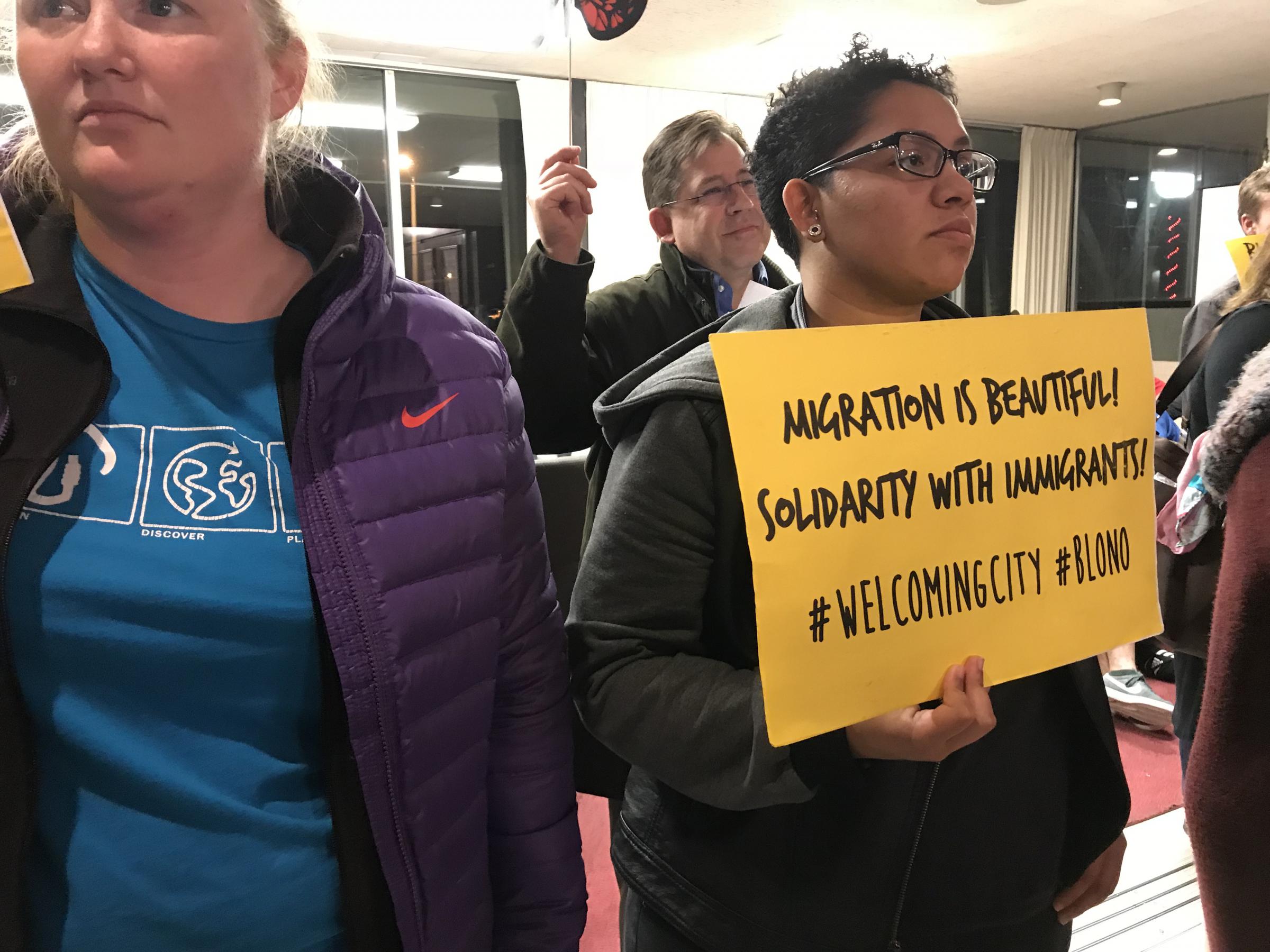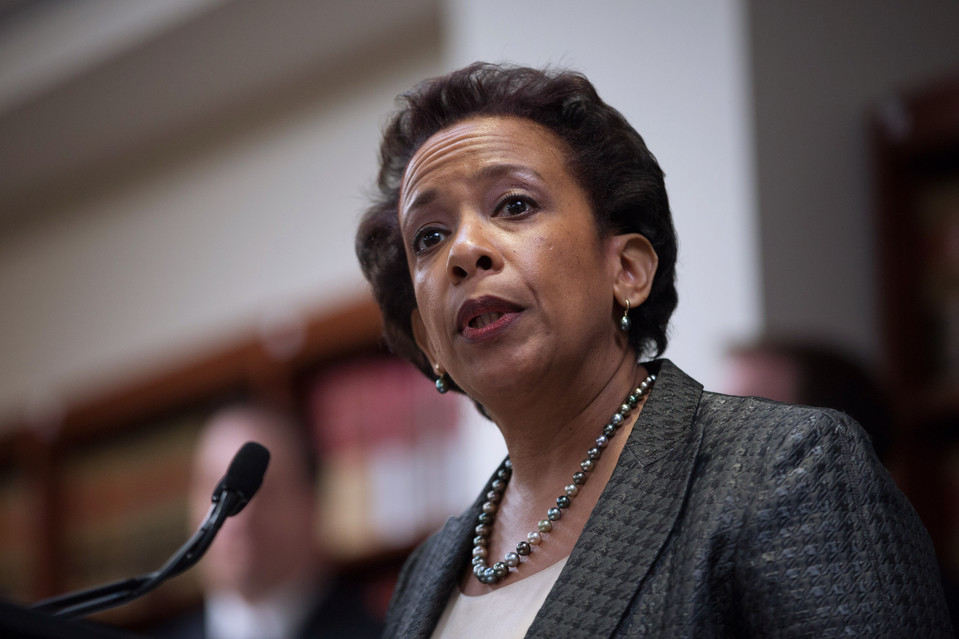Social vulnerability is defined as “the weakened resilience of communities when confronted by external stresses on human health,” such as natural or human-caused health issues or disease outbreaks. Higher social vulnerability levels often track with racial diversity, low SES, old age, limited transportation, low-quality housing, and population density.
A recently released Not In Our Town: Bloomington-Normal study by Illinois State University students and ISU’s Stevenson Center for Community and Economic Development cites numerous points of vulnerability for a key segment of the Twin Cities populace.
And according to Louis Goseland, director of the Illinois Alliance for Retired Americans’ Caring Across Generations (CAG) campaign, nationwide trends, federal and state budget debate, and gubernatorial proposals to retool and cut funding for major Illinois home care could mean even greater vulnerability for low-income, senior, and diverse other Central Illinoisans.
CAG is a national movement of families, caregivers, people with disabilities, and aging Americans working to “transform the way we care in this country.” The movement uses online action, grassroots organizing, and “innovative culture change” work to improve health policies and practices, with an emphasis on “shifting how our nation values caregiving” and calling for solutions “that enable all of us to live and age with dignity and independence.”
Currently, Goseland and Co. are focusing on the Community Care Program, which provides home care services to nearly 90,000 seniors across Illinois, enabling them to remain at home and or in their communities instead of being forced into more costly nursing homes. The services provided by home care aides through the CCP include help with meals, laundry, housework, and errands, and costs to maintain individuals in the CCP program are $10,000 annually, versus nursing homes which cost in excess of $55,000.
But while the program has enjoyed bipartisan support, budget concerns have prompted Gov. Bruce Rauner to propose moving non-Medicaid seniors into a new “Community Reinvestment Program,” potentially imposing new hardships and costs especially on lower-income seniors and their families. Beyond slashing state funding for homecare services by $120 million, the governor’s plan would call on seniors currently accustomed to home care aides providing transportation to doctor’s appointments instead to take an Uber or other unfamiliar and questionably reliable transportation “from strangers.”
Proposals like that raise a variety of issues, from seniors’ technical capabilities and physical limitations to potential inconvenience and added costs for poorer working families. Overall, the CRP "really creates a more complicates system of care for people who aren't enrolled in Medicaid."
Goseland , who relocated from Kansas to Bloomington nearly two years ago, knows firsthand how dramatic health care/home care shifts can devastate a family.
“I have kind of a personal interest, because of the experience my family had when my grandmother fell ill, just realizing how just how much a lack of access to care impacts not just the person who is in need of that care, but also the entire family structure,” relates Goseland, who served as a professional community organizer for nearly 11 years, working on political campaigns, with college students, and in research into Trump administration appointees, before discovering CAG.
“When I was about 13, my grandmother, who had problems breathing, was in need of care, but in Kansas, there just wasn’t access to a sufficient sort of state-funded home care program. So my mom, who’d been happily employed at a union job, making a good wage, ended up having to drop that and move us to a rural part of the state in order to care for my grandmother. My mom had to take on whatever she could in terms of employment just to keep food on the table, but the work opportunities were so bad that she ended up taking on multiple jobs. My mom, who was part of what’s called the ‘sandwich’ generation, cared for her mother as much as she could while needing to be a mother herself and taking on multiple jobs just to try to make thing work.”
Goseland sees Illinois as fortunate in having the Community Care Program (“I wish we’d had that in Kansas”). It has grown by more than 105 percent over the past 10 years, and “demonstrates the critical need for the state to invest more into its aging population.”
But Rauner’s untested Community Reinvestment Program would remove 36,000 non-Medicaid seniors from CCP care and shifts many home and community-based services to regional or privatized systems which according to CAG would diminish quality of service.
All that with a “complicated system of vouchers and a revolving door of service providers,” and no guarantee funding would be available for non-Medicaid seniors in need of services, Goseland warned. The Illinois Department on Aging would be given unlimited authority to make program cuts at any time.
Instead of enabling home care aides to make healthy meals for seniors, the CRP would provide meal vouchers that might not provide some older Illinoisans reliable daily nutrition. Instead of a home care aide doing housekeeping and laundry, the state would contract new and unfamiliar laundry and housekeeping services.
The Community Reinvestment Program lacks basic provider standards the Community Care Program imposes to protect senior safety and prudent funding use. It requires no licensure or certification requirements nor basic disclosure requirements for providers necessary to monitor or maintain quality of care.
And from a taxpayer standpoint, CAG argues Rauner’s plan could incur higher long-term statewide costs. “For every senior who is forced into a nursing home, the state could end up paying $15,600 or more annually than it would pay for that senior to remain in the Community Care Program,” Caring Across Generations maintains.
That’s amid what CAG sees as an already “unprecedented Elder Boom” -- every eight seconds, another baby boomer turns 65. That’s four million Americans per year and almost one in five Americans by 2025. By 2050, the number of Americans who will require some form of long-term care and support will double to 27 million.
Aside from "countless" Medicaid-eligible Illinois seniors who aren't enrolled, cost of care is expected to increase significantly for those whose income stream precludes Medicaid eligibility. "They're still facing a significant economic hardship" under the CRP, warned Goseland, who argued CCP funding "if anything should be supplemented" before the state institutes a privatized, voucher-based system.
"This is also a question of values," he said. "Are we as a state going to treat the growing longevity of our citizenry as a burden or a blessing?"
Not only seniors and families are impacted by the ongoing health care crunch -- the home care workforce makes a meager average $13,000 a year, leaving many caregivers to rely on public assistance.
The ISU/Stevenson Center study cites “overrepresentation of (health) services on the Eastside of Bloomington-Normal and the clustering of services along Veterans Parkway, Main Street, and Market Street.” Immanuel Health Center on Morris Avenue currently is the only health clinic located within Bloomington’s West Side.
West Side residents “in general are further removed from services than their East Side counterparts,” the team concluded. Public transportation can deliver residents to those services, but these trips often require seniors to make multiple transfers and can represent an additional economic and time cost “some residents cannot afford,” researchers concluded.
“Health care services in Bloomington-Normal were classified as hospitals, clinics, minute/quick clinics, psychiatric hospitals, orthopedic doctors, optometrists, dental offices, physical therapy centers, cancer care centers, and assisted living (including nursing homes and hospice),” the study details. “This abundance of services is helpful for the Bloomington-Normal residents, but there is a clear disparity in access to these services for all citizens.”
At the same time, the ISU report notes a higher prevalence of industrial sites and sources of pollution on the Bloomington-Normal’s west side. Most of Bloomington’s black population lives within the most vulnerable areas, subjected to more acute environmental hazards and sources of noise, smell, and air pollution.
Further, many areas of West and Southwest Bloomington are at a higher risk of flooding, while a major railroad junction runs through West Bloomington, surrounded by a number of industrial facilities and exacerbating both safety and health risks.



















